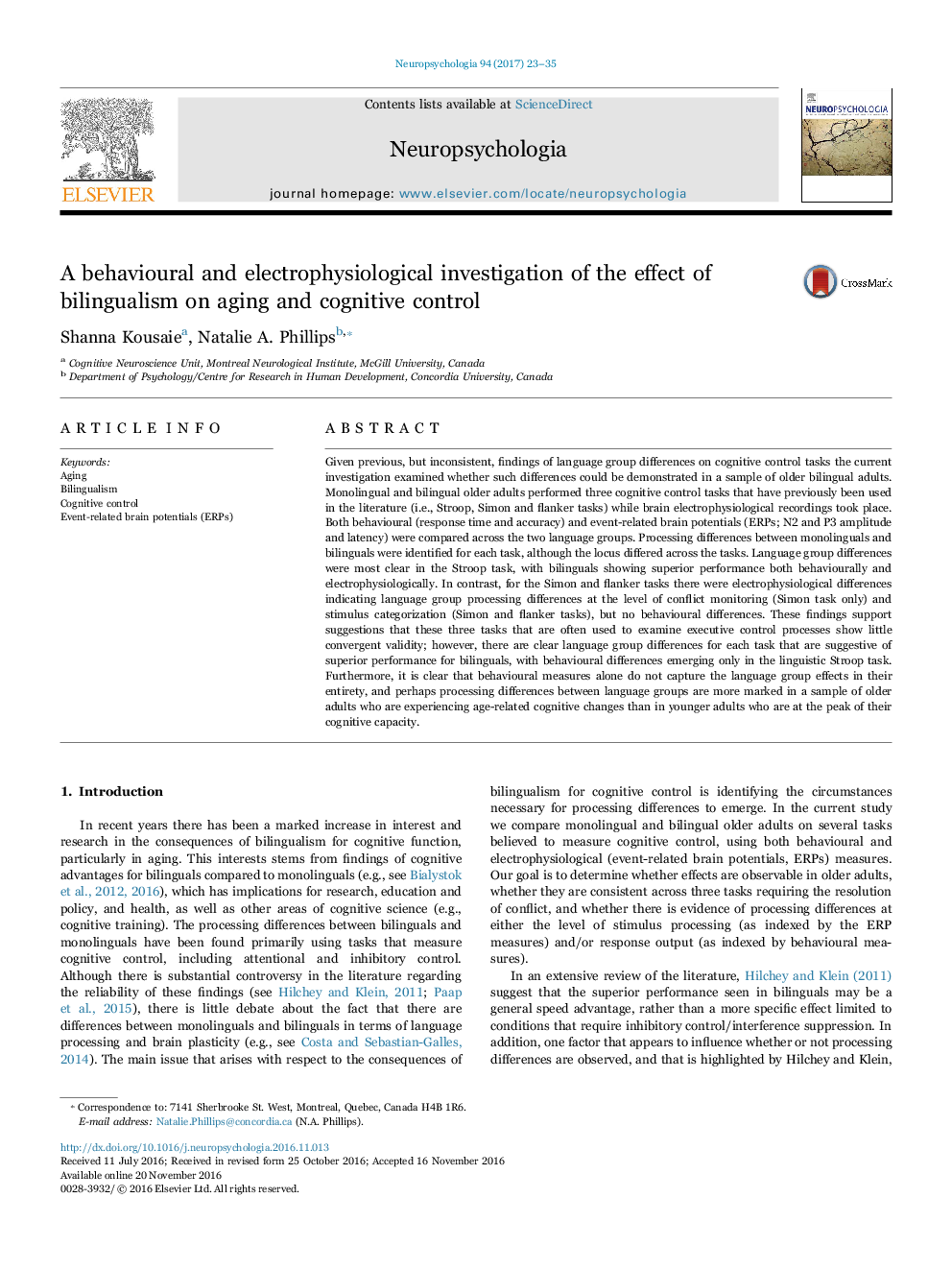ترجمه فارسی عنوان مقاله
تحقیقات رفتاری و الکتروفیزیولوژیک اثر دوزبانه بر روی سن و کنترل شناختی
عنوان انگلیسی
A behavioural and electrophysiological investigation of the effect of bilingualism on aging and cognitive control
| کد مقاله | سال انتشار | تعداد صفحات مقاله انگلیسی |
|---|---|---|
| 133989 | 2017 | 13 صفحه PDF |
منبع

Publisher : Elsevier - Science Direct (الزویر - ساینس دایرکت)
Journal : Neuropsychologia, Volume 94, 8 January 2017, Pages 23-35

